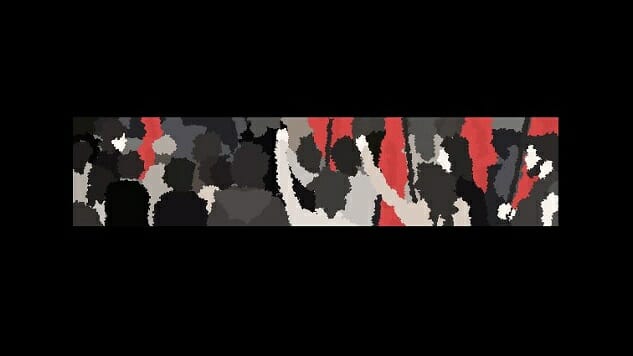Alex Camilleri’s 1977: Radio Aut tells the story of Giuseppe “Peppino” Impostato, a anti-Mafia political activist of the 1960s and ‘70s up until his murder at the hands of Mafia in 1978. His death was not considered murder until a reopening of the case by the Italian Antimafia Commission in 1998. It is a short game, playable in browser at the game’s itch.io page, or downloadable for free.
One of the points that Camilleri emphasizes in the description of the game is that “Media rarely underlines how tragic and painful Mafia was (and still is, to a different degree) for the Sicilian people.” In my anecdotal experience, he’s right. As an American, these histories are rarely taught in general education, and even in the age of the internet it’s not uncommon to simply never run across stories from other parts of the world.
Games, especially in the AAA sphere, often focus on historical events or conflicts, but in a distanced, “apolitical” manner. While there are plenty of games about historical warfare, it’s far less common to see games invested in telling stories about smaller, more intimate histories.
Independent game developers have a unique opportunity in the modern development scene to tell their own stories at a rate that is hard to match in games history. Radio Aut is an example of this—a game that can bring a regional history to a global stage, and do so through an experience that builds on the audiovisual landscape that it is trying to convey.

Radio Aut’s soundscape and sparse visuals complement its simple presentation. The game takes a player through Peppino’s life, from his youth in a Mafia family until his college years as a socialist activist and the primary voice of the real “Radio Aut”, a political action radio station broadcast from the town of Terrasini in Italy. The game is slim on narrative choice, as you might expect from a historical retelling, but even in its barebones approach it pulls forth the anger and frustration that comes with seeing an unjust system bring about unjust ends.
This is where Radio Aut is its most impactful—games, like any other medium, can be used to detail the intricacies of a struggle that the audience (or player) did not directly take part in. It’s an angle that feels less explored than that of virtuous warfare or patriotic remembrance, but has value nonetheless. 1977: Radio Aut showed me a history I had never known, and inspired me to look further into anti-Mafia activism in Italy, something I never would have thought about had I not played the game. And a game doing that for someone who lives on the other side of the planet shows how powerful this medium can be.
Dante Douglas is a writer, poet and game developer. You can find him on Twitter at @videodante.

